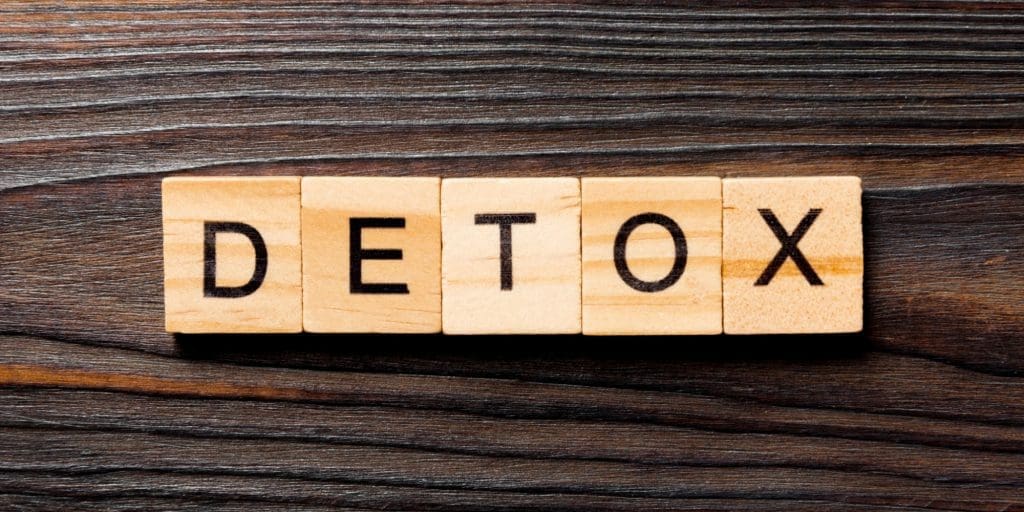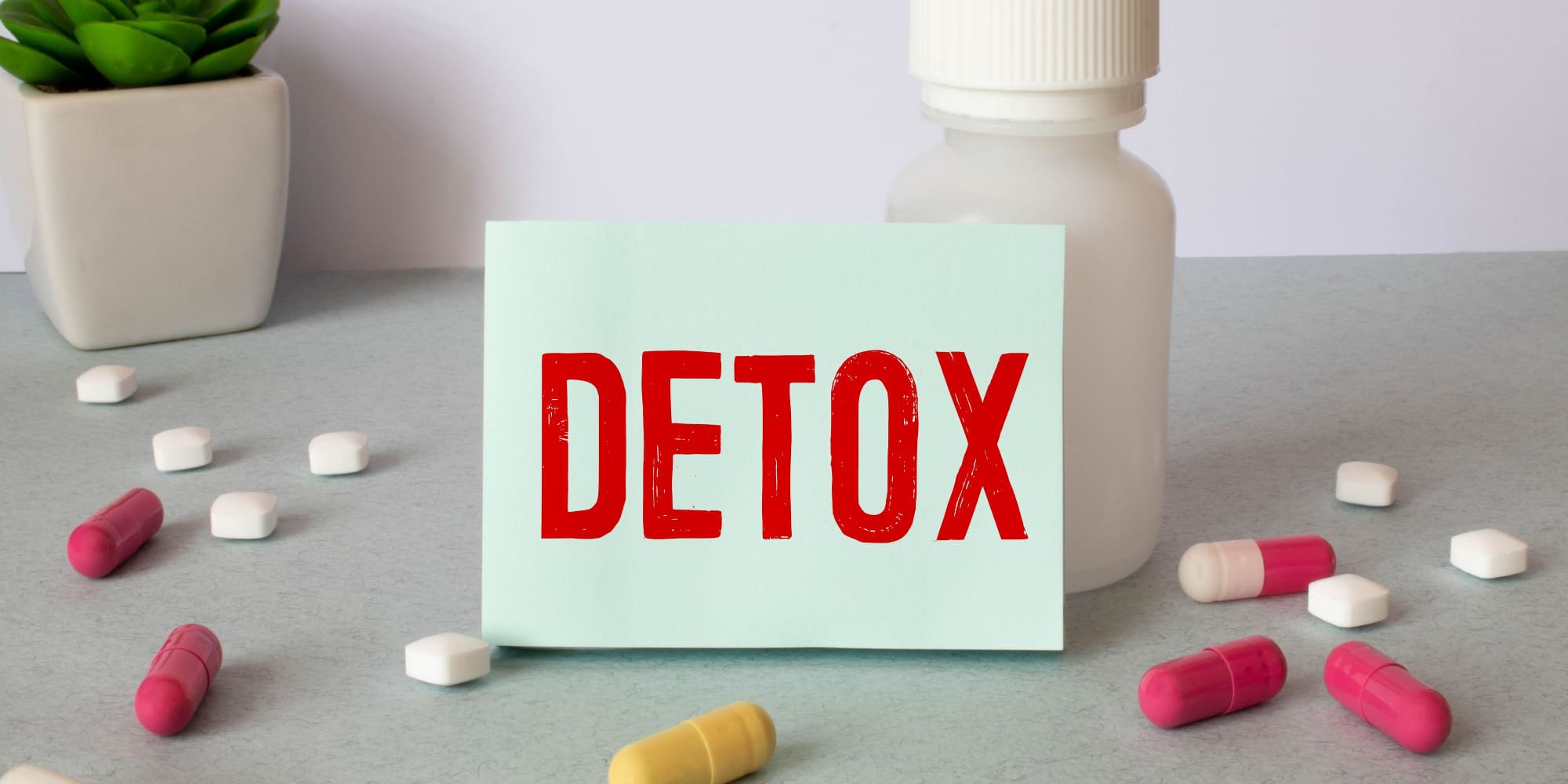Meth detox serves as a crucial initial step for individuals looking to overcome meth addiction. It helps the body return to a state of normal functionality after weeks, months, or sometimes years of substance-driven neglect.
Long-term meth users can experience any number of adverse side effects, ranging from physical ailments to distressing mental changes. When someone is ready to stop using meth to recover from its impact, however, they face a major obstacle as soon as they begin: methamphetamine withdrawal.
Uncomfortable withdrawal symptoms make meth detox difficult for individuals to get through, especially if they aren’t sure what to expect. For this reason, Port St. Lucie Hospital would like to outline the meth detox process so those in recovery can prepare themselves for its trials.
Contents
What Is the Meth Detox Process?

Before discussing the specifics of meth detox in particular, it may help to understand what the detox process involves as a whole. In short, detox (a shortened form of “detoxification”) refers to the process of a body cleansing itself of foreign toxins.
The idea of detox may not sound difficult or demanding. It is, after all, something the body will naturally accomplish, given enough time. However, in the context of drug and alcohol addictions, detox becomes a lengthier, more challenging process. This is due to a concept called drug dependence, which frequently occurs in those with addictions.
A functional human body always works to maintain chemical balance. Typically, the effects of drugs take hold by disrupting this balance. When drugs are taken consistently over a long period of time, though, the body can adapt to their presence. In other words, it can rebalance itself based around a foreign substance. This state of being becomes the new “normal.”
As a result, when someone removes that substance, the body can no longer function properly. The sense of balance it established with the drug is effectively nullified once the drug is taken away. Its chemical balance is thrown off once again, complicating the process of stopping drug use.
During meth detox, the body will rebalance itself again and relearn how to function without foreign substances. Unfortunately, this period of chemical imbalance tends to trigger the unpleasant withdrawal symptoms associated with detox.
Meth Withdrawal Timeline
Everyone has a unique experience with meth detox due to specific factors such as the severity and length of their addiction. However, thanks to the research efforts of national institutes like the National Library of Medicine, physicians have developed a general understanding of the meth withdrawal timeline.
From their findings, we can organize symptoms from the meth withdrawal process into four stages. The first three stages cover the initial month following meth detox, while the fourth addresses the possibility of long-term withdrawal effects.
Stage I: “Crash” From Meth
The first stage of meth detox encapsulates the initial 48 hours of the withdrawal process. Aptly known as the “crash” phase, individuals often experience severe nausea, sweating, and abdominal cramping. For many, this stage is also characterized by a sharp decline in cognitive function and energy levels.
Stage II: Peak of Meth Withdrawal Symptoms
As individuals recover from the initial “crash,” they move into stage II of meth detox. Stage II typically lasts around 10 days and includes the introduction of several additional withdrawal symptoms. These effects aren’t life-threatening, though they can be rather uncomfortable.
Stage II withdrawal symptoms may include:
- Dry mouth
- Fatigue
- Anxiety or depression
- Irritability or agitation
- Headache
- Paranoia
- Difficulty falling or staying asleep
- Changes in appetite
- Chills
- Tremors
- Psychosis
- Suicidal thoughts
In most cases, withdrawal symptoms peak during stage II. Many people will also experience intense cravings for more meth. Consequently, most relapses occur during this stage, and individuals need the most support during this time.
Stage III: Lingering Side Effects and Meth Cravings
The third stage of meth detox refers to the first month following someone’s last instance of drug use. Most of the intense, physical withdrawal symptoms have faded away at this point. Residual drug cravings and fatigue may remain, but otherwise, someone’s body has mostly regained its ability to function normally without meth.
Stage IV: The Start of Addiction Recovery
Some individuals experience the effects of meth detox for a long time. Symptoms like depression, anxiety, and drug cravings in particular may persist for several months. Fortunately, by this time, the physical component of detox should be complete.
For many people, this marks the true beginning of their addiction treatment journey. From here, they can set out to attain the psychological support they need to overcome meth addiction.
Medical Meth Detox vs. At-Home Detox


Understandably, many people feel more comfortable in their own homes than they would at a clinical facility. If they have to cope with the withdrawal symptoms discussed above, they may prefer to do so in a familiar setting.
However, most medical professionals advise against trying to detox at home. While many of the effects of meth detox are fairly mild, it would be unwise to overlook the possibility of more severe complications, like psychosis and suicidal thoughts.
At-home detoxes mean that someone would not have immediate access to the staff, equipment, and other resources available at designated treatment centers. Without this medical supervision, any complications would go untreated and potentially threaten the wellbeing of the detoxing individual.
To circumvent this risk, consider a medical detox program instead. A medical meth detox is a specialized program designed to keep individuals safe throughout the detox process. For example, medical professionals monitor patient status and vitals 24 hours a day. They know how to handle any physical and mental changes patients experience during detox.
In addition, a medical detox essentially eliminates the risk of immediate relapse. When someone tries to detox at home, their experience with withdrawal symptoms may cause them to return to meth quickly to escape their discomfort.
At a treatment center, however, patients lose easy access to addictive substances. This makes it much easier to see meth detox through to the end as well as continue treatment afterward.
What Happens After Meth Detox?
Meth detox often serves as the first major hurdle in addiction recovery, but others will follow in its wake. As a result, many individuals need to pursue additional support to overcome addiction in its entirety.
At Port St. Lucie Hospital, we make this process as seamless as possible by offering a full continuum of care. After detox, patients may transition to a complementary treatment program that builds upon the efforts of medical meth detox.
Of our treatment programs, the most likely candidate to aid in addiction recovery is our dual diagnosis program. This program exists to help individuals with co-occurring mental health and substance abuse issues. Someone looking for meth addiction treatment can benefit from a dual diagnosis program if they also exhibit signs of depression, anxiety, or another mental illness.
When someone enrolls in dual diagnosis treatment, they can expect to participate in a wide range of evidence-based treatment options, such as:
- Psychiatric assessment
- Individual therapy
- 12-step programming
- Supplemental therapies
- Group therapy
- Medication evaluation and management
- Family education
- Relapse prevention
Partaking in residential rehab after meth detox prepares individuals for long-term success and sobriety. These therapeutic activities teach vital coping skills that help replace unhealthy habits and promote emotional stability.
Meth Detox Program in Port St. Lucie, Florida
Port St. Lucie Hospital strives to uncover and repair the core issues driving someone’s substance use and mental illness so they can make a swift return to healthy, normal life. For those battling methamphetamine addiction, that starts with meth detox.
Our medical detox program unites patients with a team of licensed physicians and addictions specialists. Under their diligent watch, the discomforts associated with meth withdrawal are kept to a minimum. Furthermore, any potential complications receive immediate, effective action to keep patients completely safe.
To learn more about our meth detox program, call our admissions experts at (772) 238-7734. If you need a bit more time to organize your thoughts and questions, consider submitting a confidential contact form instead. Remember that you are more than your meth addiction, and with our help, you can regain control of your life.



























